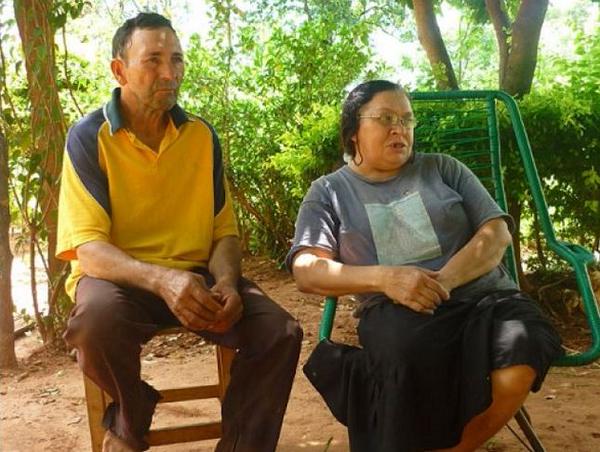
The number of Venezuelan migrants in Colombia has increased from 936,000 in October to one million today. The flow of migrants puts pressure on health and education services in Colombia. Given that the situation in Venezuela is worsening, Colombians dread that the migratory crisis and its impact on Colombia will accentuate further. Former diplomat and current minister of foreign affairs of Colombia, Carlos Holmes Trujillo, has appealed to the international community to intensify their efforts and increase their support for the migrant population in the Colombian territory.
While presenting a report on the gravity of the Venezuelan migrant crisis, Holmes said, “The government estimates that we are already in the first stage of growth of the migrant crisis if the dire humanitarian, political, and economic situation in Venezuela doesn’t improve. It is evident from the failure of the systems of electricity and water supply, and the fuel shortages.” He added, “The flow of migrants is increasing. On average, 63,000 people enter Colombia from our borders every day; about 2,500 remain in our country.”
He mentioned that there were 1,295,552 migrants in the country. “It is the second largest migration in the world, after the migration of Syrians to Turkey; but it is the fastest in the world as a large number of people have arrived in a very short time,” he said.
For Holmes Trujillo, “the structural solution to the crisis is to oversee the creation of conditions that facilitate the end of the tyrannical and dictatorial regime of Maduro.”
La solución estructural a la crisis migratoria tiene que ver con crear condiciones que permitan cese del régimen tiránico de Maduro. Por eso también llamamos a comunidad internacional a incrementar la acción solidaria, política y sanciones que den lugar al cese de la usurpación
— Carlos Holmes Trujillo (@CarlosHolmesTru) May 22, 2019
The Venezuelan migration is impacting the Colombian state in significant ways. Holmes offered some statistics:
- In 2015, there were 1,457 emergency health care visits by Venezuelans in Colombia hospitals. This number has risen to 131,958 by the end of 2018; the increase is enormous and exposes the rise of more than 8800% in the fiscal burden of the emergency health services.
- In critical locations such as the municipality of Cucuta, the Erasmo Meoz hospital attended to 488 cases of pregnancy and childbirth for Venezuelan women. Maternity care forms 86% of the cases of healthcare received by Venezuelans.
- To date, 20,000 children have been born to Venezuelan parents in the Colombian territory, creating a critical situation and the need for medical attention for the infant population.
- Two out of every three patients are women. Pregnant women are more than 20% of all patients receiving healthcare in Colombia.
- The illnesses associated with pregnancies have increased, including gestational syphilis, neonatal problems, etc. In Venezuela, access to contraception and prenatal care are virtually absent. Therefore, the Colombian healthcare service has had to bear the costs of pregnancies.
- More than 900,000 vaccines have been given to Venezuelan children, most of them under the age of five years. However, the demand is fast increasing.
- According to statistics from the Colombian ministry of education, about 150,000 Venezuelan children are enrolled in Colombian public schools. In municipalities like Villa del Rosario, Tibu, Ocaña, and Cucuta, there are no more vacancies for children, and the enrollment has increased by 159% between 2018 and 2019. The increased enrollment has affected the quality of education, and the problem demands increased efforts to provide schooling materials, meals for students, and better educational infrastructure.
- The Colombian Institute of Family Welfare has attended to more than 62,000 children up to the age of five years. However, it is necessary to expand their capabilities since they currently do not have adequate resources.
Colombian president Ivan Duque announced the framework of the Border Impact Plan which earmarked 60 billion COP for hospitals in the border region. However, according to Holmes, the crisis is so severe that despite these efforts, health care centers are in debt of more than 150 billion COP due to the provision of healthcare services to Venezuelans.
Additionally, he urged for investments in water supply, sewage, and electricity to avoid health and sanitation problems in border towns.
Resources are also needed for what are called ‘second-generation challenges’ such as the economic inclusion of migrants.
Insufficient aid
Holmes said that since January 2018, Colombia has received international aid of 288,196,294 USD. Meanwhile, the United Nations has made a call for 738 million USD in 2019 which will be invested in the region to assist 2.2 million of the three million Venezuelan migrants and refugees who, according to UNHCR, are in 22 Latin American and Caribbean countries.
However, so far, Colombia has only received 21% or 69.3 million dollars of these resources.
According to Holmes, these statistics are in stark contrast to the funds allocated in 2018 for similar crises in other parts of the world. For example, the UN dedicated 5.61 billion USD for the 5.3 million migrants and refugees in Turkey, Lebanon, Jordan, Iraq, and Egypt. The countries have already received 2.66 billion USD. Similarly, the UN brought attention to the plight of 1.4 million refugees from South Sudan in Ethiopia, Kenya, Uganda, the Central African Republic, the Democratic Republic of the Congo, and Sudan. The UN called for funds worth 1.4 billion USD, of which 700 million USD were mobilized.
Holmes remarked, “We see that compared to the number of migrants and refugees, the UN appeal for funds for our region is less than that for other regions, even as the crisis continues to grow.”
Apart from reiterating the appeal for global cooperation for the crisis, Holmes asked the international democratic community to increase their acts of solidarity, political action, and sanctions to lead the way to the end of the usurpation.
 Versión Español
Versión Español












